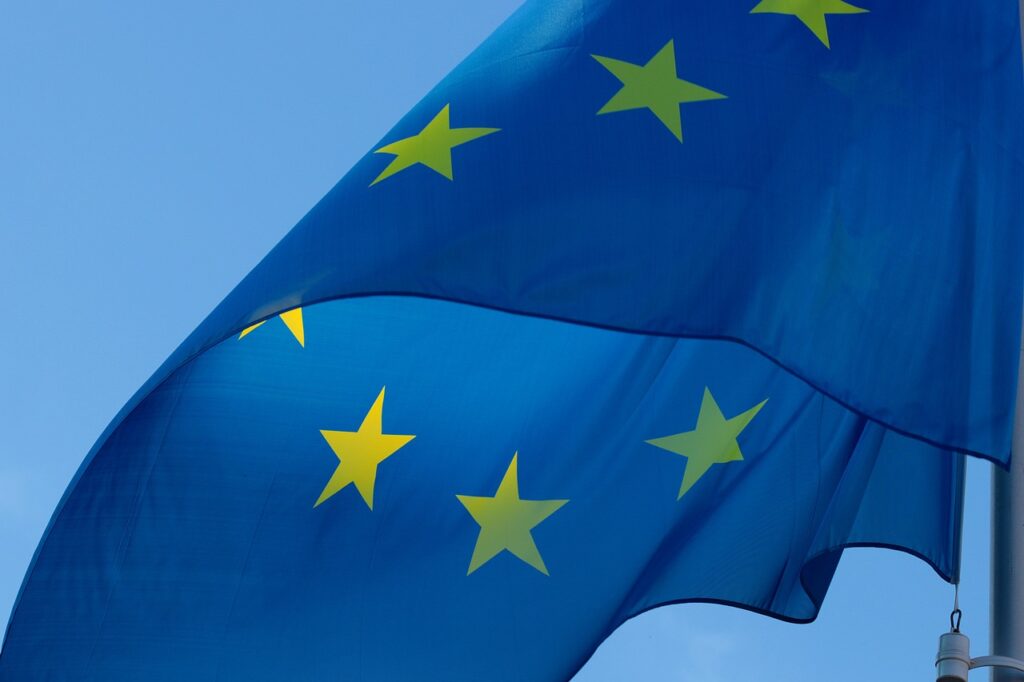The European Union’s WEEE directive showed the rest of the world how e-waste legislation should be done, and driven by the member states’ commitment to climate neutrality, the new Corporate Sustainability Reporting Directive (CSRD) is set to do the same when it comes to ESG.
As part of the European Green Deal, the CSRD requires in-scope large businesses, SMEs and also some non-EU enterprises to disclose sustainability information within their financial reports.
The legislation seeks to improve transparency, availability and reliability of the impact corporations have on the environment; providing stakeholders, investors, suppliers and consumers with accurate evidence, helping them to make more informed decisions.
What is the Corporate Sustainability Reporting Directive?
Building on the Non-Financial Reporting Directive 2014, (NFRD), which laid the foundations for non-financial ESG disclosures within company annual reports, CSRD provides a common framework. It will substantially widen the scope and crucially make the broader, more robust sustainability reporting requirements both standardised and mandatory.
Having become law on 5th January this year, large companies will be the first to comply with the new rules, and have limited time to prepare; reporting their financial year beginning on or after 1st January 2024, as soon as 2025. The regulations for SMEs are more lenient and will only be enforced from 2027.

What are the key objectives of the CSRD framework?
The new legislation will undoubtedly spark greater motivation and ethical innovation as organisations are encouraged to advance their ESG efforts. Delivering significant benefits, such as attracting green investors and boosting revenue, businesses will be able to assess the growing demand for sustainability, driving the growth of responsible enterprises.
A 5-year study published in early 2023 by McKinsey and NielsenIQ, revealed a clear link between ESG-related claims and greater consumer spending. * A fact supported by multiple post-pandemic surveys, which state that between half and two-thirds of consumers are happy to pay more for sustainable products. ^
Extending the scope.
According to the European Commission, the optional NFRD only applied to 11,700 large companies or public interest entities in the EU. The Corporate Sustainability Reporting Directive will require around 50,000 public and private organisations to submit independently verified, digitally-tagged reports. Although specific disclosure requirements are still to be confirmed, they will include specific details about the company’s sustainability policies, their 2030 and 2050 net zero targets and metrics. Furthermore, details of the organisation’s environmental risk and how the business plans to mitigate its impact, must also be reported. This also extends to third-party value and supply chains.
Double materiality.
The Corporate Sustainability Reporting Directive also increases its scope with its double materiality, dual-perspective. In-scope organisations must disclose information about how the business affects the planet and its inhabitants, but also how their sustainability risks, mitigation measures and targets affect the company itself. For example, energy consumption reduction targets or the monetisation of e-waste will improve the company’s bottom line.
Transparency and accountability.
Referred to by the European Commission as the ‘accountability gap’, the Non-Financial Reporting Directive’s statements faced criticism as they lacked depth and comparability. Believing that consumers and investors deserve comprehensive information about an organisation’s environmental impact, the EU aims to improve trust, transparency and accountability within all sustainability reporting; providing real insight, through thorough analysis, benchmarking and auditing.
Reporting unification and consistency.
The CSRD’s common framework will act as a single, simple reporting solution to ensure cooperation and compliance.
The regulation has been specifically designed to synchronise and simplify legislative reporting processes for businesses. Disclosures will be required in line with the European Sustainability Reporting Standards, (ESRS); which aims to set a global standard. The intention being to reduce administration for the international companies who will be required to submit multiple global reports or respond to varied requests from stakeholders.
According to the European Parliament, the decrease in such requests will save between €24,200 and €41,700 per company, annually.+
Companies will be required to submit their data in a standardised, machine-readable digital format, preventing false ethical claims and ‘greenwashing’. This consistency will build trust, reliability and accuracy, boosting ESG investments and growing the social economy.
Audited assurance.
To enhance the credibility of disclosed information, the CSRD requires compulsory auditing; providing robust, reliable assurance to corporate sustainability data. A statutory or financial auditor will need to sign off on the sustainability report.
Although plans are to tighten this requirement, this part of the legislation is limited to begin with due to a reduced number of sustainability auditing services, at present. Therefore, the usual auditors and independent assurance service providers can evaluate and verify company CSRD reports initially.

Does CSRD apply to UK companies?
Whilst their parent companies may not be based in the EU, enterprises with an international footprint will need to remain compliant with the legislation, much like the GDPR. Therefore, CSRD will apply to some UK businesses with subsidiaries in member states.
So, which companies need to comply with the CSRD regulations? In short, any organisation with over 250 employees, a turnover of more than €40m or more than €20m in assets will need to respond. ** Companies outside the EU, with a turnover exceeding €150 million in the member states must comply, too. ^^ To facilitate reporting for listed SMEs, simplified standards are available. The European Commission is also looking into creating specific rules for non-listed SMEs, in this rapidly evolving, complex legislation.
The reporting timeline depends on the size of the business but for non-EU companies. Large, subsidiaries listed in EU markets or those that have an EU branch with an annual net turnover exceeding €40m, must report from 2029, for the previous financial year.
It’s important to note that responsibility falls to the company itself to decide whether the directive applies to them, the specific reporting information that is required and the timeline they need to adhere to.
What are the penalties for CSRD non-compliance?
The CSRD penalties are likely to include a public statement about the breach, which could result in considerable reputational damage, an order could be placed on the business forcing compliance, and most significantly, a financial fine or potentially even criminal proceedings could be enforced.
Penalties will be defined and set by each individual, EU member state in accordance with their own laws. As an example, the current German Non-Financial Reporting Directive states that organisations can be fined up to either €10m, 5% of their annual turnover, or twice the amount of the profits gained due to the breach. +

Holding a further 38,300 businesses accountable for their non-financial reporting than before, the groundbreaking Corporate Sustainability Reporting Directive provides a stricter, mandatory, audited framework, which will prevent greenwashing and ensure greater reliability, accuracy and consistency when it comes to an organisation’s sustainability claims.
Combined with Europe’s 2050 climate-neutrality target and European Green Deal initiatives, improved sustainability disclosures will drive wider global collaboration in response to the inevitable demand for greater ESG transparency from investors, stakeholders and customers alike – reducing climate change in the longer term.
*McKinsey & Co, ^IBM & The National Retail Federation, +Circularise, **Achillies, ^^Sphera.
tier1’s fully circular, environmentally friendly ITAD services ensure you protect company data and prevent data security issues, whilst boosting your organisation’s ethical operations.
Helping you to deliver your sustainable IT policy and boosting your all-important ESG rating, our government-approved, data erasure services securely destroy your data, rather than your end-of-life IT assets. These can then be reused, refurbished, resold or recycled.
You can trust our expert team to guide you through the complexities of your corporate legal compliance. When it comes to the CSRD reporting and the GDPR data destruction requirements, it’s our business to know their obligations inside out.
Ask our friendly team about any of our IT asset disposal services or our 5-star refurbished technology resale platform, contact our friendly team on 0161 777 1000 (Manchester), 01621 484380 (Maldon) or visit www.tier1.com
Resources.
IBM, National Retail Federation, Plan A, Grant Thornton, Circularise, Green Element, PwC, Greenomy, Field Fisher, Achillies, Deloitte, McKinsey & Co.



